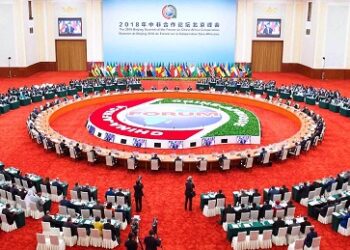Thabo Mvuyelwa Mbeki, South Africa’s second post-apartheid president, is one of the most controversial figures in the country’s modern history. While he is seen as an architect of economic stability and growth and a staunch advocate of the African Renaissance, he is also widely criticized for his stance on the AIDS crisis and other political issues. Mbeki’s legacy cannot be understood without delving into the details of his political life, from his upbringing in exile, to his pivotal role in the negotiations to end apartheid, to his presidency, which was characterized by pragmatism and challenges.
Thabo Mbeki was born on June 18, 1942, in Mbewuleni, eSigangeni, South Africa. He came from a family of prominent political activists, as his father, Govan Mbeki, was a leading figure in the African National Congress (ANC) and the South African Communist Party. Mbeki grew up in a politically entrenched environment and attended ANC-affiliated schools.
In 1962, Mbeki left South Africa for exile after the African National Congress was banned by the apartheid regime. He spent the following years studying and engaging in political activism abroad. He earned a Master’s degree in economics from the University of Sussex in the United Kingdom, which gave him a deep understanding of economic issues. During this period, Mbeki played a significant role in the youth wing of the African National Congress and became close to the movement’s leaders in exile.
The years of exile were crucial in shaping Mbeki’s political character. He gained extensive diplomatic experience, established relationships with African and international leaders, and became the ANC’s spokesperson at various international forums. He was seen as a skilled diplomat, able to present the South African case in a convincing and influential manner.
In 1990, Mbeki returned to South Africa after the ANC was unbanned and Nelson Mandela was released. He played a pivotal role in the negotiations that led to the end of apartheid. He was considered a pragmatist, able to negotiate with his opponents in a calm and measured manner, which earned him the trust of both the African National Congress and the white government.
In 1994, after the African National Congress won the first democratic elections, Mbeki was appointed First Deputy President in Nelson Mandela’s Government of National Unity. During this period, he was responsible for managing the day-to-day affairs of the government, while Mandela focused on national reconciliation.
In 1999, Thabo Mbeki assumed the presidency of South Africa after Nelson Mandela’s retirement. His nine-year term was characterized by a focus on economic stability and growth.
The Economy: Mbeki pursued liberal economic policies, working to attract foreign investment, privatize some state-owned enterprises, and improve the economic climate. During his rule, South Africa experienced stable economic growth and declining inflation. He believed that economic growth was the only way to address the poverty and unemployment that plagued the majority of the black population.
Foreign Policy: Mbeki was a staunch advocate of the African Renaissance, the idea that Africa should take responsibility for solving its own problems. He played a key role in establishing the African Union and developing the New Partnership for Africa’s Development (NEPAD) initiative. He was a mediator in several African conflicts, such as the one in the Democratic Republic of the Congo.
However, Mbeki’s tenure was not without controversy. His most prominent criticism was his stance on the AIDS crisis. Mbeki embraced unproven scientific theories linking poverty and AIDS and questioned whether HIV was the cause of AIDS. This stance led to a delay in launching a national antiretroviral drug program, which, according to some health organizations, resulted in the deaths of hundreds of thousands of people who could have been saved.
In 2007, Mbeki lost the presidency of the African National Congress to his rival, Jacob Zuma. In 2008, the African National Congress forced him to resign from the presidency after he was accused of interfering in corruption cases against Zuma.
Mbeki’s tenure ended abruptly, but his legacy remains complex. On the one hand, he is viewed as a strategic leader who helped build a stable democracy and achieved tangible economic achievements. On the other hand, he is widely criticized for his stance on AIDS, which many consider a stain on his record. His governing style, characterized by centralization and a lack of direct contact with the people, ultimately had a negative impact on his popularity.
Thabo Mbeki remains a pivotal figure in South African history. He was a pragmatic, goal-oriented leader, but he was also a controversial figure who made decisions that drew considerable criticism. His contributions to building the post-apartheid state are undeniable, but they must be viewed in the context of the challenges and controversies that accompanied his rule.
Quotes from Thabo Mbeki:
“When will the day come that our dignity will be fully restored, when the purpose of our lives will no longer be merely to survive until the sun rises tomorrow!”
“The poor prey on one another because their lives offer no hope and communicate the tragic message to these human beings that they have no possibility to attain a decent standard of living.”
“South Africa was to evolve into the most pernicious example of the criminal practise of colonial and white minority domination.”
“If you sit in a position where decisions that you take would have a serious effect on people, you can’t ignore a lot of experience around the world which says this drug has these negative effects.”



























































